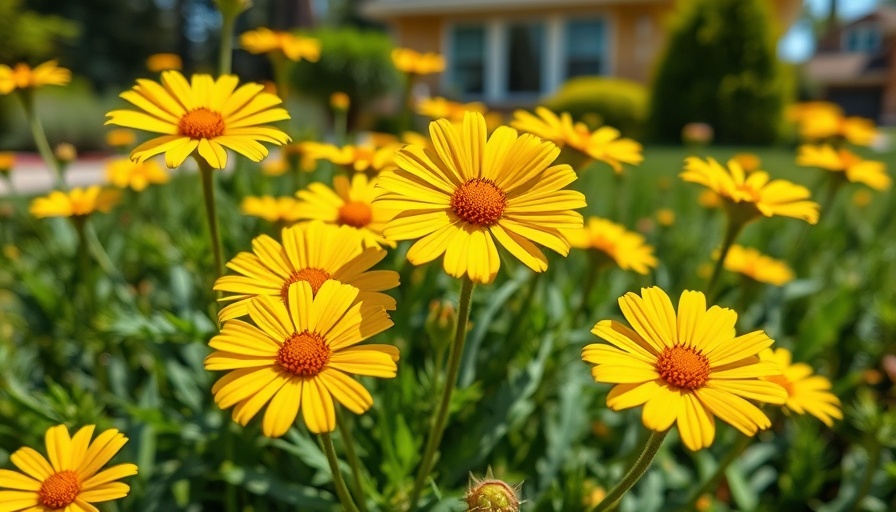
Discover Ideal May Crops for Urban Gardens
May signifies more than just the arrival of warmer days; it’s the optimal time to dig into your gardening plans. For residents of Metro Vancouver, whether in small backyards or on balconies, knowing what to plant this month can yield bountiful harvests. With some careful choices, you'll find that you can easily cultivate a diverse range of plants irrespective of limited space.
In 'The 12 Best Crops to Plant in May ASAP!', the discussion dives into essential planting tips, exploring key insights that sparked deeper analysis on our end.
Bunching Onions for Beginner Gardeners
One of the simplest crops to introduce to your garden is the bunching onion, also known as scallions. These versatile onions are perfect for cultivation in urban spaces, as they require minimal room and can be spaced closely together for maximum yield. Unlike traditional bulbing onions, scallions are bred not to form large bulbs, making them ideal for quick harvesting. Varieties like the Italian Red of Florence offer uniqueness and flavor that's hard to find in grocery stores. Just sprinkle the seeds into seed cells, water them in, and watch them thrive!
Sweet Summer Melons: A Treat to Savor
No summertime garden is complete without melons! Believe it or not, there are varieties that perform beautifully even in cooler climates, like Minnesota melons and Hearts of Gold. Their shorter growing season means you can enjoy them by late summer if you plant now in May. Melons love a good compost base, so enrich your soil well before direct seeding for the best results. Ensure they have space in your raised beds so the vines can flourish without becoming entangled.
Health Benefits of Growing Beans
Beans are a powerhouse in any garden, adding not just nutrition to your plate but also nitrogen to your soil. Focus on bush beans if you’re short on space. These compact varieties, including a colorful trio from Botanical Interests, are both easy to manage and visually appealing. They also require less maintenance than pole beans. Plant them directly into well-prepared beds, ensuring to leave space for successive plantings every few weeks for continuous harvest.
Vegetables for Hot Climates: Roselle and Edible Hibiscus
If you think summer only brings heat, think again. In urban gardening, we have the ability to grow resilient crops like roselle and edible hibiscus. The former flourishes even in peak summer, while the latter, with its mild-flavored leaves, is a fantastic substitute for traditional greens, perfect for those hot months when lettuce can struggle. Delight in their striking appearance as well—these plants typically add interest to your garden.
Maximize Your Space with Container Gardening Techniques
For small garden spaces, container gardening can work wonders. Raspberries, for instance, can easily thrive in 20-gallon grow bags. Using these allows for flexibility in planting fewer spaces since they adapt well to urban settings. Pair them with an acidifier for a thriving breeding ground, and as your garden flourishes, you’ll benefit from additional fruits over time as they mature.
Final Thoughts: Sustaining Your Green Thumb
As you dive into your May gardening endeavors, remember that each plant choice can reflect not just a botanical preference, but also a step toward healthier eating and sustainable living. The combinations are endless, from hearty beans to flavorful bunching onions. Consider the space you have available and make choices that align with both your taste preferences and space limitations. Happy gardening!
 Add Row
Add Row  Add
Add 




 Add Row
Add Row  Add
Add 

Write A Comment